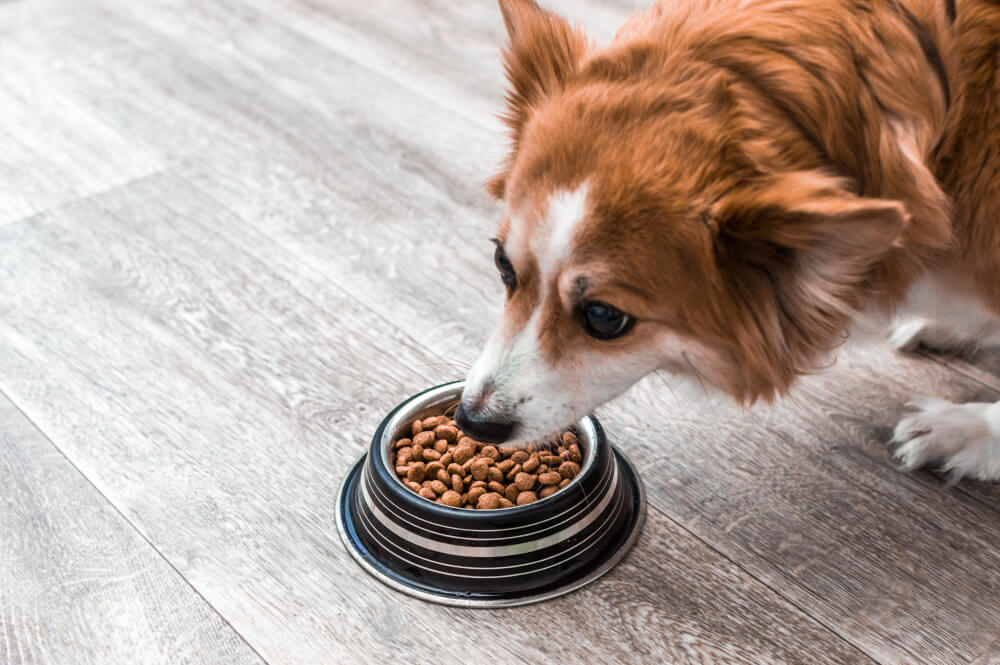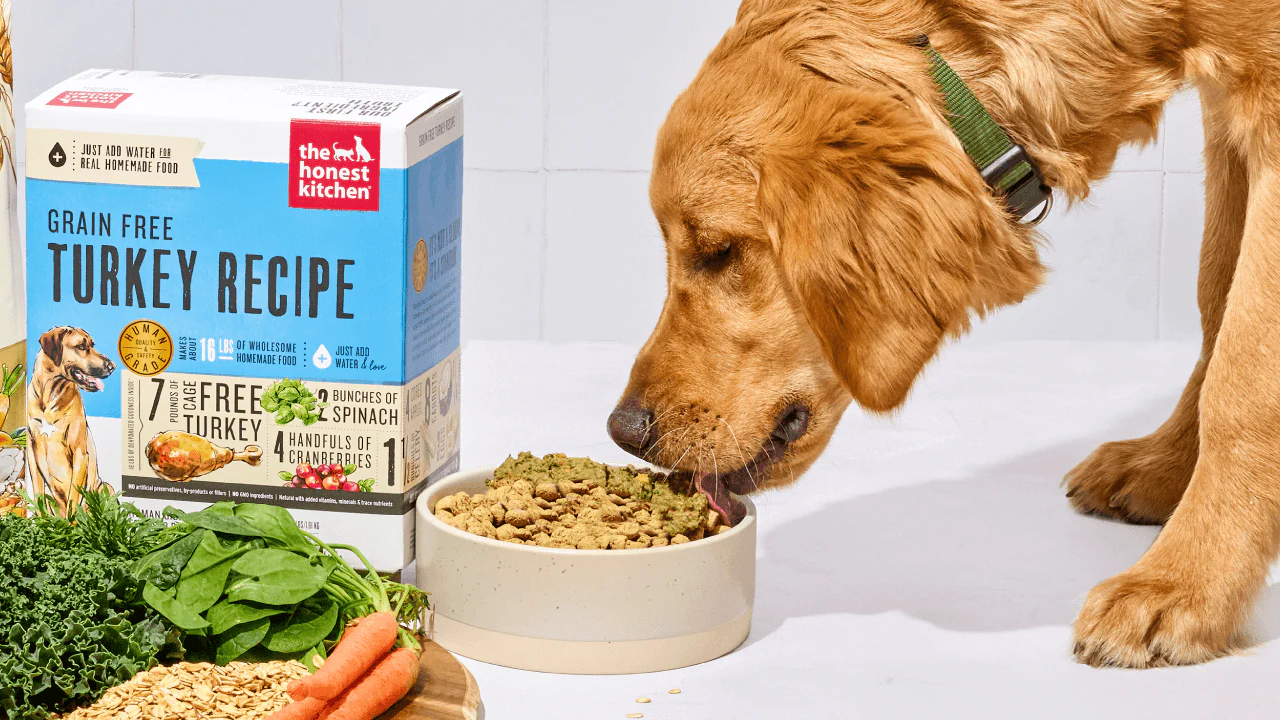A Pet Owners Guide to Intestinal Cancer in Dogs: Causes, Symptoms, and Treatment
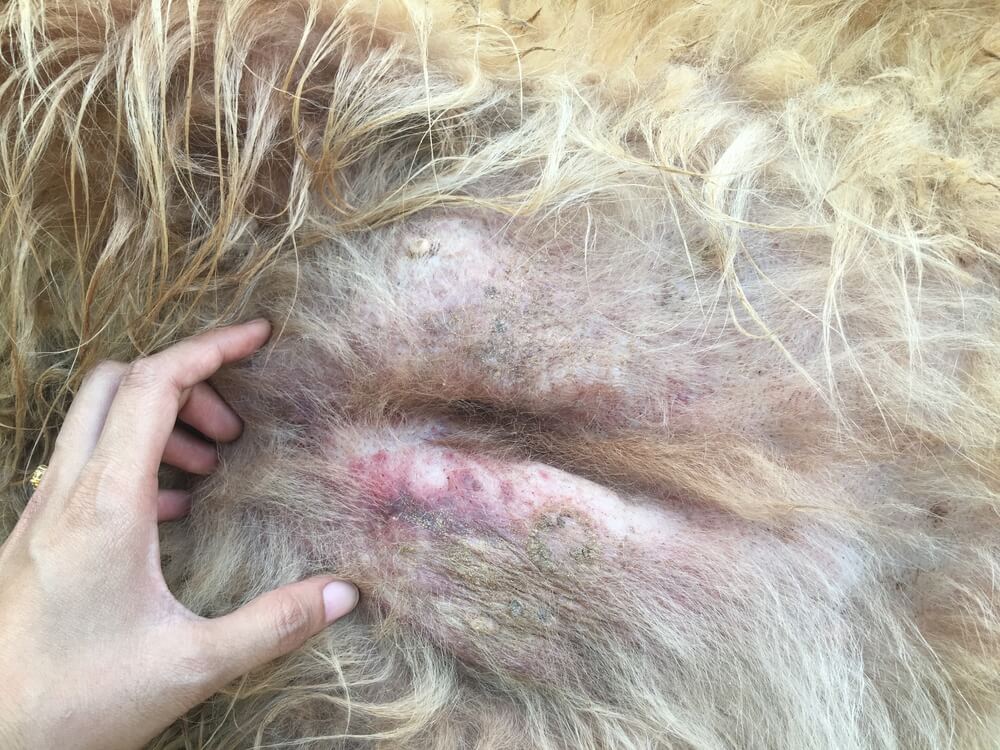

A Pet Owners Guide to Intestinal Cancer in Dogs: Causes, Symptoms, and Treatment
Table of Contents
What is Intestinal Cancer in Dogs?
Intestinal cancer in dogs is a type of cancer that develops due to the uncontrolled growth of cells in the dog’s intestines. In general, intestinal tumors are more common in the large intestines but can also develop within the small intestines.
Intestinal cancer in dogs usually starts in the epithelial cells that line the intestines or in the smooth muscle layer underneath the lining. Based on cells included in the tumor, there are three types of intestinal cancer in dogs: lymphoma, leiomyosarcoma, and adenocarcinoma.
According to PennVet, intestinal cancer in dogs is “fairly uncommon.” This is good news, as intestinal tumors have a high chance of metastasis and can spread to other organs such as the lymph nodes, liver, lungs, and peritoneum (lining of the abdomen).
What is the Most Common Intestinal Tumor in Dogs?
According to The National Canine Cancer Foundation, the most common type of intestinal cancer in dogs is lymphoma (which accounts for 29% of the intestinal cancer cases in dogs).
Below is a list of the most common types of intestinal cancer in dogs.
Lymphoma in Dogs. Lymphoma is a malignant tumor that develops due to abnormal growth and infiltration of a specific line of white blood cells called lymphocytes. It can occur at any location of the intestines and is the most common type of intestinal neoplasia.
Leiomyosarcoma. This type of cancer affects the smooth muscle layer of the intestines. It usually affects the small intestines and comprises 23% of all canine intestinal tumor cases.
Adenocarcinoma in Dogs. Adenocarcinoma is a type of tumor that starts in glandular cells. Intestinal adenocarcinoma affects the large intestines (colon and rectum) and accounts for 17% of intestinal cancer cases in dogs.
Some less common types of intestinal tumors in dogs are mast cell tumors, gastrointestinal stromal tumors (GISTs), leiomyomas, hemangiosarcomas, adenomas, polyps, carcinoids, and extraskeletal osteosarcomas.
What Causes Intestinal Cancer in Dogs?
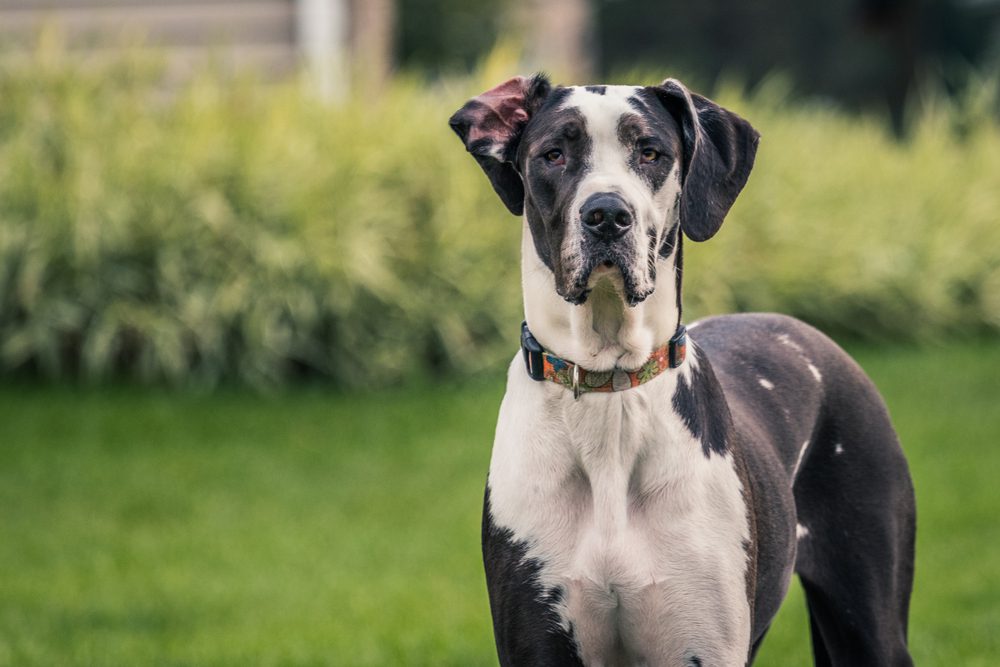
Similar to other types of cancer, the exact cause of intestinal cancer in dogs is unknown. In general, cancer is caused by genetic and environmental risk factors.
- Age. According to VCA Hospitals, intestinal cancer is more common in middle-aged to older dogs (usually between 6 and 9 years of age). However, intestinal tumors in dogs can also develop in puppies and adults.
- Breed. Intestinal neoplasia is more common in larger dog breeds (German Shepherds, Collies, Boxers, Terriers, and Great Danes). The only expectation is mast cell tumors which occur in small breeds (Maltese dogs).
- Sex. PetMD states that male dogs have a higher predisposition to intestinal cancer than female dogs. This higher risk applies to both malignant and benign intestinal tumors.
- Chronic Intestinal Conditions. FirstVet suggests that chronic intestinal conditions, such as Inflammatory Bowel Disease (IBD), are a risk factor for intestinal neoplasia. Continuous inflammation causes cellular changes, which may progress into cancer.
What are the Symptoms of Intestinal Cancer in Dogs?
The clinical signs and symptoms of intestinal cancer vary according to the tumor’s location, type, and stage. In general, they are related to the gastrointestinal tract and include:
- Vomiting. Tumors in the upper parts of the dog’s intestinal tract can cause nausea and vomiting. The vomit can be tainted with blood spots if there is ulceration on the tumor.
- Loss of Appetite (Anorexia). Dogs may lose interest in food as a general sign of illness or due to the digestive discomfort caused by intestinal neoplasia. Anorexia is the term used to describe the complete loss of appetite.
- Weight Loss. The decreased appetite results in weight loss. Weight loss can also occur due to impaired digestion and nutrient absorption in the intestines.
- Diarrhea. Diarrhea is rare in dogs with intestinal cancer but can sometimes occur in dogs with tumors in the lower portions of the large intestines.
- Distended Belly. Distended belly (pot-bellied abdomen) occurs in the advanced stages of intestinal cancer in dogs and results from fluid build-up in the abdomen.
- Difficulty Defecating. This is common in cancer that affects the rectum. You may notice increased straining. In severe cases, it can result in rectal prolapse, a situation where the rectum is pushed out of the anus.
- Anemia. This secondary effect occurs if there are bleeding ulcers in the dog’s gut. Losing too much blood results in anemia and manifests with pale gums and exercise intolerance.
If your dog is showing one or more of these signs and symptoms, you need to call the vet as soon as possible.
Diagnosing Intestinal Cancer in Dogs
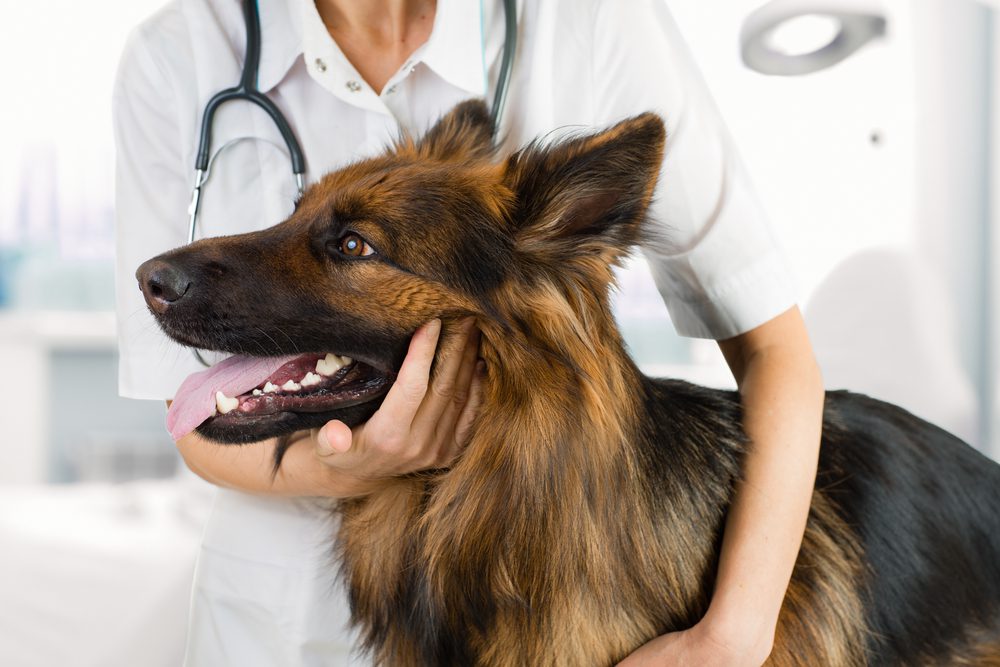
The diagnosing process starts with the basic physical examination. The vet will inspect your dog’s appearance and palpate the belly and the rectum during the exam. Based on the initial findings, the vet will suggest more specific tests.
Commonly performed tests when diagnosing intestinal cancer in dogs are:
- Blood tests (complete blood count and biochemistry profiles) and urinalysis to evaluate the dog’s overall health.
- Endoscopy to get a better look into the dog’s digestive tract and assess the tumor’s size and exact location.
- Fine-needle aspiration to collect a sample of the cancer cells that will be analyzed under a microscope.
- Exploratory laparotomy is when the veterinary surgeon opens the dog’s stomach to see what is going on and collect a tissue sample.
- Biopsy to analyze the collected tissue sample after being adequately prepared in terms of histopathology.
- Chest x-rays to establish whether the tumor has spread to the lungs.
- Abdominal ultrasound and radiographs to gather more information about the intestinal tumor and its spreading to other abdominal organs.
- Advanced imaging techniques like CT scans and MRI can be performed and read by a vet specializing in oncology.
How do You Treat Intestinal Cancer in Dogs?
The best treatment options for intestinal cancer are surgery, chemotherapy, and radiation therapy. To ensure the best outcome, sometimes, these approaches are combined.
Surgery. Surgical removal of tumors is usually recommended for small tumors that have not yet spread to other areas of the body. However, vets may recommend surgery for palliative reasons (symptom relief).
Chemotherapy. Chemotherapy is often the treatment of choice for tumors that have spread to other organs. So far, it has proven most effective in dogs with intestinal lymphoma. Chemotherapy can be combined with surgery and radiation.
Radiation. Radiation therapy may also be used in conjunction with chemotherapy or surgery to shrink dog’s tumor or destroy residual cancer cells. However, the exact efficacy of radiation in dogs with intestinal tumors is not evaluated.
In addition to these traditional treatment options, talk to your veterinarian about holistic cancer treatment for dogs such as natural herbs and remedies.
Cannabidiol (CBD) Products. CBD has anti-anxiety and anti-inflammatory properties that can be useful for a dog undergoing cancer treatment. When choosing CBD products for your dog, it is best to go for a pet-safe and vet-approved brand like Honest Paws.
What can I do to Prevent Intestinal Cancer in Dogs?

Unfortunately, there is no single thing you can do to protect your dog from intestinal cancer. However, you can decrease your dog’s risk factors for intestinal cancer or any type of cancer by providing a healthy lifestyle.
A healthy lifestyle for a dog involves a nutritious diet, regular physical exercise, healthy body weight, pet-safe products, regular pet visits, and good mental wellbeing.
If your dog is diagnosed with intestinal cancer, it is your responsibility to provide the best treatment possible. This can be expensive, as surgery alone often costs up to $5.000.
To prepare yourself for such expenses, sign up for a good pet health insurance plan to prepare yourself for such costs. The OneVet Insurance gives you $3000 in emergency funds, 24/7 access to a licensed vet, and coverage for all pre-existing conditions, all for as little as $19.99 a month.
How Long Can Dogs Live With Intestinal Cancer?
The life expectancy for dogs with intestinal cancer varies based on several factors such as the tumor’s type, location, and staging. It also depends on the pursued treatment in terms of quality and promptness.
According to NC State Veterinary Hospital, the survival time for dogs with intestinal cancer can be as low as two months in cases of high-grade lymphoma to as long as three years in cases of GISTs.
The median survival time for dogs with small intestine adenocarcinoma is between four and ten months, and for leiomyosarcomas, around a year or two.
Can Dogs Survive Intestinal Cancer?

Yes, dogs can survive intestinal cancer. However, this type of canine cancer has a poor prognosis, with most dogs dying within a year of diagnosis.
So far, surgery has the best odds of managing intestinal cancer in dogs. Sadly, it is only done successfully if the tumor hasn’t spread and formed metastasis.
